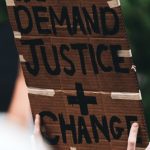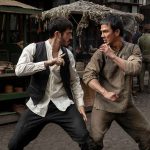 Crime
Crime  Crime
Crime  Technology
Technology 10 Hilariously Over-Engineered Solutions to Simple Problems
 Miscellaneous
Miscellaneous 10 Ironic News Stories Straight out of an Alanis Morissette Song
 Politics
Politics 10 Lesser-Known Far-Right Groups of the 21st Century
 History
History Ten Revealing Facts about Daily Domestic Life in the Old West
 Weird Stuff
Weird Stuff 10 Everyday Products Surprisingly Made by Inmates
 Movies and TV
Movies and TV 10 Actors Dragged out of Retirement for One Key Role
 Creepy
Creepy 10 Lesser-Known Shapeshifter Legends from Around the World
 Animals
Animals 10 Amazing Animal Tales from the Ancient World
 Gaming
Gaming 10 Game Characters Everyone Hated Playing
 Crime
Crime 10 Terrifying Serial Killers from Centuries Ago
 Technology
Technology 10 Hilariously Over-Engineered Solutions to Simple Problems
 Miscellaneous
Miscellaneous 10 Ironic News Stories Straight out of an Alanis Morissette Song
Who's Behind Listverse?

Jamie Frater
Head Editor
Jamie founded Listverse due to an insatiable desire to share fascinating, obscure, and bizarre facts. He has been a guest speaker on numerous national radio and television stations and is a five time published author.
More About Us Politics
Politics 10 Lesser-Known Far-Right Groups of the 21st Century
 History
History Ten Revealing Facts about Daily Domestic Life in the Old West
 Weird Stuff
Weird Stuff 10 Everyday Products Surprisingly Made by Inmates
 Movies and TV
Movies and TV 10 Actors Dragged out of Retirement for One Key Role
 Creepy
Creepy 10 Lesser-Known Shapeshifter Legends from Around the World
 Animals
Animals 10 Amazing Animal Tales from the Ancient World
 Gaming
Gaming 10 Game Characters Everyone Hated Playing
10 Landmark Cases of the International Criminal Court
The International Criminal Court (ICC) stands as a pivotal institution in the realm of global justice, distinct in its focus and jurisdiction. Established in 2002, it serves as the first permanent international court tasked with prosecuting individuals for the most severe violations of human rights: genocide, crimes against humanity, war crimes, and the crime of aggression.
Unlike national courts, the ICC’s mandate transcends borders, addressing crimes that have shattered communities and nations worldwide. This court represents a collective endeavor to confront impunity and uphold international law, a testament to the international community’s commitment to accountability and justice. Its proceedings and rulings are not just legal actions but also powerful symbols of the global fight against gross human rights violations. The cases brought before the ICC often involve high-profile figures and complex legal challenges.
This list examined ten landmark cases of the International Criminal Court.
Related: Top 10 Punishments That Didn’t Fit The Crime
10 Bosco Ntaganda
Bosco Ntaganda, a former military leader in the Democratic Republic of the Congo (DRC), was charged for his involvement in numerous war crimes and crimes against humanity. These charges were specifically associated with his actions in Ituri, DRC, from 2002 to 2003. Ntaganda faced various serious offenses, including murder, rape, sexual slavery, recruitment and conscription of child soldiers, pillage, and persecution.
He allegedly committed these acts while serving as a key leader in the Union of Congolese Patriots (UPC) and its military wing, the Patriotic Forces for the Liberation of Congo (FPLC). The UPC/FPLC primarily targeted non-Hema civilians, embodying the broader ethnic conflict in the region.
The legal proceedings against Ntaganda hold significance in the history of the ICC. He surrendered voluntarily and was transferred to the ICC in 2013. His trial commenced in September 2015 and concluded in August 2018, leading to his conviction on 18 counts of war crimes and crimes against humanity in July 2019.
This verdict marked a milestone in international law, especially as it was the ICC’s first conviction for sexual slavery. In November 2019, Ntaganda received a 30-year imprisonment sentence, the longest ever issued by the ICC at the time. The defense’s appeal against this conviction and sentence was dismissed in March 2021, reinforcing the ICC’s dedication to holding individuals accountable for severe international crimes.[1]
9 Al Hassan Ag Abdoul Aziz
Al Hassan, who was born in Mali on September 19, 1977, was a key figure in the control of Timbuktu from 2012 to 2013. During this time, armed groups called Ansar Eddine and Al-Qaeda in the Islamic Maghreb (AQIM) occupied the city. Al Hassan was a vital member of the Islamic police, implementing the rules of these groups.
He is accused of serious crimes, like torture, rape, forced marriages, and attacking religious and historic buildings. These actions are considered crimes against humanity and war crimes according to the Rome Statute, a treaty to which Mali is a party. Al Hassan was arrested on March 27, 2018, after the International Criminal Court issued a warrant. He was brought to the ICC a few days later, on March 31, 2018, and appeared in court for the first time on April 4, 2018. His charges were confirmed from July 8 to 17, 2019, and he was committed to trial on September 30, 2019.
The trial started on July 14, 2020. This trial is significant as it addresses the destruction of cultural heritage, with the prosecution emphasizing the importance of such sites to the identity and history of communities. The case against Al Hassan is part of broader efforts to bring justice for the atrocities committed during the conflict in Mali.
The verdict, expected to be delivered in 2024, will be a significant decision in international law, particularly concerning crimes involving cultural destruction.[2]
8 Dominic Ongwen
Dominic Ongwen, a former leader in the Lord’s Resistance Army (LRA), a rebel group in Uganda, was born in 1975. The group, led by Joseph Kony, was known for its extreme violence and the use of child soldiers in a long battle against the Ugandan government. Ongwen was charged with numerous crimes during this time.
These included serious offenses such as murder, enslavement, causing injury, cruel treatment of civilians, attacking civilians, looting, and forcing children under 15 to join the group. These crimes were linked to attacks on four different locations between 2003 and 2004. In 2005, the International Criminal Court ordered his arrest, and he was turned over in 2015. His trial began at the end of 2016, and in February 2021, he was found guilty of 61 charges of serious crimes. He was sentenced to 25 years in prison in May 2021.
This case is significant because it deals with severe human rights abuses and the use of child soldiers. It’s worth noting that Ongwen himself was reportedly kidnapped by the LRA as a child. This makes his case particularly complex as it raises questions about whether someone who was a victim can also be held responsible for crimes. His sentencing is seen as a milestone in international law, considering these complex issues against the backdrop of serious human rights abuses.[3]
7 Ratko Mladić
The case of Ratko Mladić, a former Bosnian Serb military leader, holds significant importance in the history of the International Criminal Tribunal for the former Yugoslavia (ICTY). Mladić was charged with genocide, crimes against humanity, and war crimes committed in Bosnia and Herzegovina from 1992 to 1995. His indictment was confirmed on July 25, 1995, but he evaded capture until his arrest in Serbia on May 26, 2011.
His trial began on May 16, 2012. Throughout the trial, the prosecution presented nearly 10,000 exhibits and called upon 377 witnesses. The defense started its case on May 19, 2014, calling 248 witnesses and presenting over 1,000 exhibits. Mladić faced extensive charges, including leading an ethnic cleansing campaign against non-Serb populations. This included the infamous Srebrenica massacre in July 1995, where over 7,000 Bosnian Muslim men and boys were killed. He was also charged with the 44-month siege of Sarajevo, which resulted in more than 10,000 deaths.
The prosecution sought to prove Mladić’s involvement in a joint criminal enterprise aiming to permanently expel non-Serbs from Bosnian Serb-claimed territory. On November 22, 2017, Mladić was found guilty of 10 out of the 11 charges, including one count of genocide, and was sentenced to life imprisonment. This verdict was appealed, and on June 8, 2021, the Appeals Chamber of the International Residual Mechanism for Criminal Tribunals (IRMCT) upheld his life sentence, affirming his conviction on 10 of the 11 charges, including genocide.
Mladić’s conviction serves as a stark reminder of the atrocities of the Yugoslav Wars and the crucial role of justice in the healing and reconciliation process.[4]
6 Laurent Gbagbo & Charles Blé Goudé
In 2016, the ICC heard the high-profile case of two Ivorian nationals, Laurent Gbagbo and Charles Blé Goudé. They were charged with crimes against humanity, including murder and rape, committed during the post-election violence in Côte d’Ivoire from 2010 to 2011. However, in a surprising turn of events, both Gbagbo and Blé Goudé were cleared of all charges by a majority of the court in January 2019.
The Chamber concluded that the prosecutor failed to demonstrate several core constitutive elements of the crimes as charged, particularly with respect to the causal link between the alleged crimes and the accused—including the existence of a policy to commit crimes against civilians and that public speeches constituted ordering, soliciting, or inducing the alleged crimes. Although the prosecutor appealed this decision, the Appeals Chamber stood by the earlier acquittal in March 2021. As a result, Gbagbo and Blé Goudé are now free, with all restrictions on them lifted.
This case was a significant test of the ICC’s ability to handle high-profile figures. Supporters of Gbagbo in Ivory Coast celebrated the ruling as a win for Africa. However, this decision sparked worry among civil war victims’ associations, who feel justice was not served. The 2010 election dispute in Ivory Coast was marked by severe clashes and targeted killings. Gbagbo was accused of resorting to extreme measures, including murder and rape, to retain power.
This is not the first time a case has collapsed at the ICC, leading to concerns over the quality of evidence and trial procedures. The ICC’s outgoing prosecutor, Fatou Bensouda, stated that the implications of the judgment would be studied, and investigations into alleged war crimes in vory Coast would persist.[5]
5 Uhuru Kenyatta
Uhuru Kenyatta was accused of crimes against humanity related to post-election violence in Kenya from 2007 to 2008. This violence, which followed disputed presidential elections, resulted in thousands of deaths, over half a million displacements, and numerous sexual assault cases.
Kenyatta, the son of Kenya’s first president, held various government roles before his presidential election in 2013. He was accused of planning, financing, and coordinating attacks against opposition supporters during the 2007-08 violence. The ICC charged Kenyatta with five counts of crimes against humanity, including murder, deportation, rape, persecution, and other inhumane acts.
He was suspected of orchestrating these attacks through criminal organizations. However, due to insufficient evidence and the withdrawal of key prosecution witnesses, the charges were dropped in December 2014. The ICC prosecutor claimed widespread witness tampering and inadequate cooperation from the Kenyan government.
Kenyatta’s trial faced numerous challenges, including Kenya’s efforts to undermine the ICC’s independence. These efforts led to ICC rule changes, allowing individuals with “extraordinary public duties at the highest national level” to request a trial exemption. Civil society vehemently opposed these changes, viewing them as threats to the ICC’s independence.
Kenyatta’s case prompted important questions about the ICC’s ability to prosecute sitting heads of state and the difficulties in securing cooperation from member states.[6]
4 Omar al-Bashir
Omar al-Bashir, the former president of Sudan, is a pivotal figure in international criminal justice. He was the first sitting head of state to have an arrest warrant issued against him by the International Criminal Court. The ICC has wanted him since 2009 for crimes against humanity, war crimes, and genocide in Darfur, Sudan. This case is significant as it’s the first time a head of state has been charged with genocide by the ICC.
The charges against al-Bashir are severe and stem from a counter-insurgency campaign against rebel groups in Darfur, initiated after a rebel attack in April 2003. He is suspected of indirectly perpetrating five counts of crimes against humanity, including murder, extermination, forcible transfer, torture, and rape. Additionally, he faces two counts of war crimes and three counts of genocide. The genocide charges, the first of their kind by the ICC, relate to crimes against the Fur, Masalit, and Zaghawa ethnic groups.
Despite the ICC’s warrants, al-Bashir has visited numerous countries without arrest, highlighting the challenges of international cooperation and enforcement of the court’s rulings. His travels have faced substantial opposition from civil society groups and NGOs, leading to legal actions and increased international isolation.
However, the UN Security Council and member states’ failure to ensure his arrest has sparked contention and criticism. The case of Omar al-Bashir exemplifies the complexities and challenges in holding leaders accountable for crimes against humanity and war crimes.[7]
3 Jean-Pierre Bemba
Jean-Pierre Bemba, former vice-president and militia leader of the Democratic Republic of Congo, was central to a significant case at the International Criminal Court. He was convicted in 2016 for war crimes and crimes against humanity committed in the Central African Republic (CAR) from 2002 to 2003.
His militia, the Mouvement pour la Libération du Congo, was accused of murder, rape, and pillaging against civilians. Bemba’s trial, which began in November 2010, was the ICC’s first case focusing on command responsibility. It argued that Bemba either knew or should have known about the crimes his militia committed and failed to prevent them. He was convicted in March 2016 and sentenced to 18 years in prison in June 2016.
In a surprising turn of events, the ICC Appeals Chamber acquitted Bemba in June 2018, citing significant errors made by Trial Chamber III, including convicting Bemba for actions beyond the charges’ scope. The trial was also remarkable for the large number of victims involved and its focus on sexual and gender-based crimes.
With over 5,000 civilian victims authorized to participate, the trial featured extensive witness testimony on sexual violence, underscoring the ICC’s commitment to addressing such crimes in conflict zones. However, the case faced obstacles, including allegations of witness tampering by Bemba’s defense team. Despite his acquittal on war crimes, Bemba and four associates were charged with offenses against the administration of justice, highlighting the complexities and challenges of international criminal proceedings.[8]
2 Germain Katanga
The case against Germain Katanga, a former leader of the Patriotic Resistance Force in Ituri, was a significant event in international justice. Katanga faced charges at the ICC for war crimes and crimes against humanity related to an attack on the village of Bogoro in Ituri district in early February 2003.
This case is notable as it addresses charges of sexual and gender-based violence, including rape and sexual slavery. Katanga was charged with seven counts of war crimes and three counts of crimes against humanity. The attack on Bogoro resulted in the death of at least 200 civilians, mostly of Hema ethnicity, and involved pillaging, sexual enslavement of women and girls, imprisonment of survivors in a building filled with corpses, and the use of child soldiers.
The Katanga case highlights the ongoing violence and instability in the eastern provinces of the DRC, where armed groups, foreign armies, and the Congolese national army have been involved in conflicts over land and resources. Despite the official end of hostilities in 2003, violence continues, with civilians facing killings, rape, forced displacement, and other atrocities.
Katanga was found guilty on March 7, 2014. He was sentenced to 12 years in prison, with the time already spent in detention at the ICC deducted from his sentence. An order on victim reparations was issued on March 24, 2017.[9]
1 Thomas Lubanga Dyilo
In 2012, the ICC made a groundbreaking decision by convicting Thomas Lubanga Dyilo, a rebel leader, for recruiting and using child soldiers in the Democratic Republic of the Congo. Lubanga, who led the Union of Congolese Patriots, was found guilty of committing war crimes against children under 15 between 2002 and 2003. His trial, which started in January 2009 following his 2006 transfer to the ICC, was a significant step in international justice.
This verdict sent a clear warning to military leaders around the world: recruiting children for war is a grave offense with serious repercussions. The trial, however, faced scrutiny over the prosecutor’s office’s evidence handling and reliance on intermediaries for contacting victims and witnesses. These challenges underscored the necessity for more thorough field investigations. The trial also brought to light the prevalent issue of child soldiers, particularly in Lubanga’s group, often referred to as “an army of children.”
The Lubanga case had far-reaching implications for global justice, serving as a stern warning to notorious figures like Joseph Kony, the head of the Lord’s Resistance Army (LRA), who faces similar charges from the ICC. This case underlined the ongoing need to capture and bring such rights violators to justice. Human Rights Watch, however, pointed out that the charges against Lubanga didn’t fully capture the extent of atrocities committed by his forces.
The organization emphasized the need for broader justice efforts to address the full range of serious crimes committed by the UPC and other groups in the Congo. The Lubanga case established important precedents in court procedures and victim involvement, stressing the importance of robust witness protection and streamlined trial processes. The insights gained from this trial are vital for enhancing the effectiveness of future ICC trials, including those related to the Congo and Central African Republic.[10]








